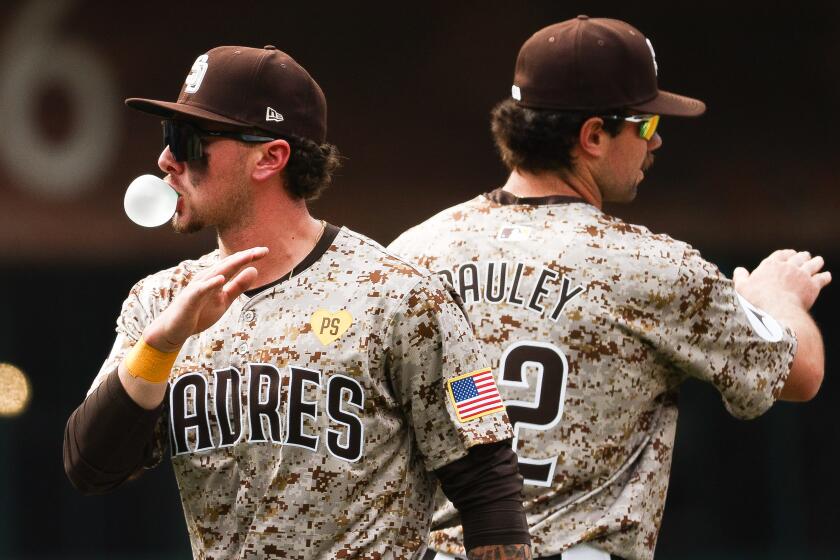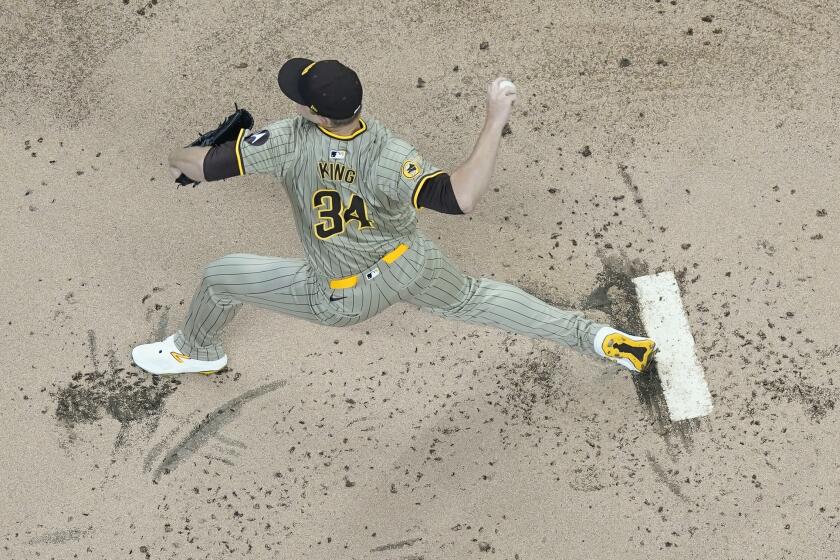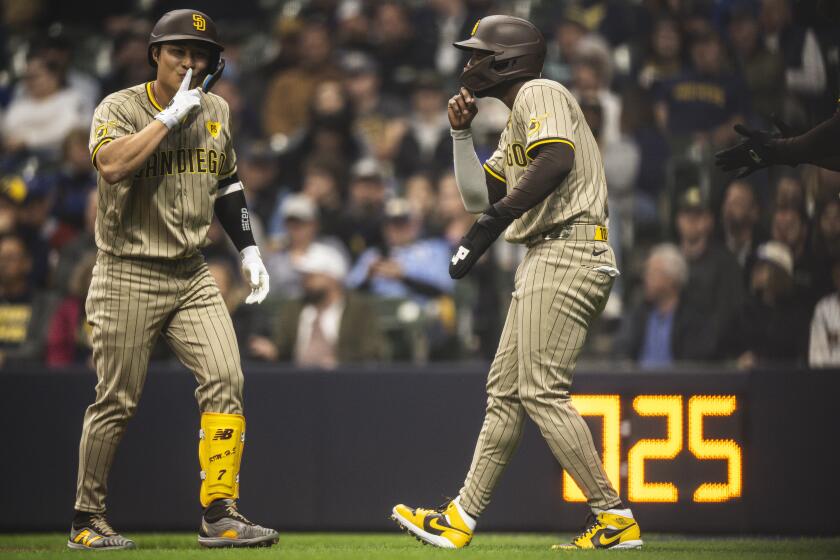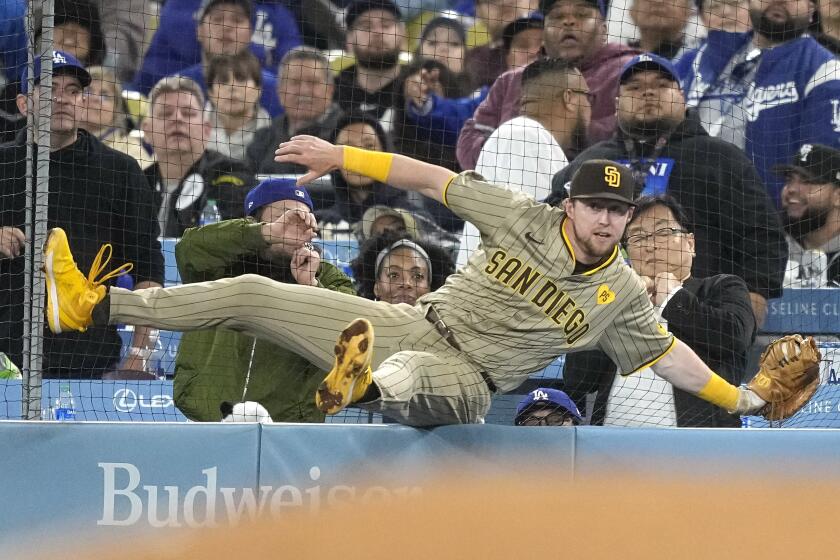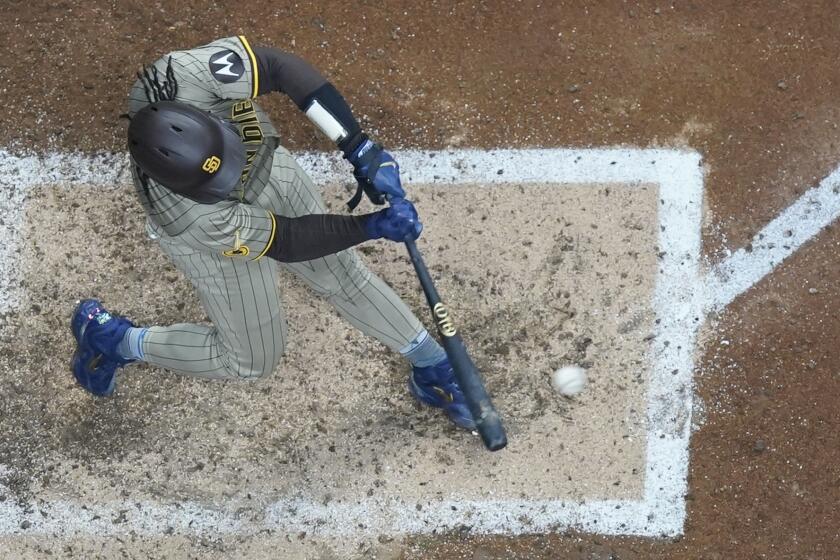Chargers defense can stand on its own
Surely, the Chargers offense is one of the Chargers defense’s best assets.
Converting eight of their first 11 third downs and putting together three scoring drives of more than five minutes contributed to the Chargers having the ball for 42:15 of their 30-21 victory over the Seattle Seahawks on Sunday. Only twice in the past 23 years had a Chargers team controlled the clock like that.
But let’s not overlook the job the Chargers’ defense did toward that end – and allow ourselves to consider what it might mean going forward.
That was the offense we expected to see, rather than the discombobulated group six days prior. The defense has been the question. And while it might not have provided an answer quite yet, it gave us some hints that it can be a championship group.
John Pagano’s gameplan was fantastic, as was his preparation. He mixed it up a few times, for sure. But most impressive about the defense was that it didn’t take gimmicks, as Pagano has often had to employ for his outmanned squad to hold up against good opponents.
Tricked out
Instead, the Seahawks needed tricks to really move the ball on the Chargers.
Chargers coaches and players were mostly lamenting some big plays allowed to the Seahawks, including a few fostered by misdirection.
The officials missed Percy Harvin stepping out of bounds on his way to the end zone for the touchdown that gave Seattle a first-quarter lead. It was the way Harvin got the ball and room to run that rankled the Chargers.
With Marshawn Lynch lined up as a fullback and wide receiver Percy Harvin in the running back spot, Seahawks quarterback Russell Wilson faked a handoff to Lynch, running right, before pitching wide to Harvin.
The move to Lynch sucked rookie outside linebacker Jerry Attaochu inside at the line and froze safety Richard Marshall in the secondary. Harvin easily blew past an off-balance Attaochu, and Marshall was just a fraction of a second late as Harvin sped past him down the sideline. Actually, had the replay official acted properly, Marshall would have been credited with the tackle, as it was him Harvin swerved to avoid.
“If they play football against us, they’re not scoring,” Weddle said. “That’s the reality. We were the best defense on the field.”
I don’t know about the former, but the latter was true.
It may have been for just one very hot day, and no one is saying the Chargers match up man-to-man with the Seahawks’ defense. But the Chargers bested the second coming of the ’86 Bears on Sunday.
Big plays, big stops
Zach Miller gained 22 yards on the game’s first play. Harvin had the 51-yard score. Robert Turbin’s 32 yards on a dump-off set up a second-quarter touchdown but should have been called back when Dwight Freeney was held. And Donald Butler was naturally picked on Marshawn Lynch’s 14-yard touchdown reception in the third quarter.
Outside of those four plays, the Seahawks gained 169 yards. Just two of their nine possessions lasted longer than five plays.
Perhaps most impressive – and supportive of the idea that this defense is high-caliber on its own merits – was the Seahawks’ first possession in the third quarter.
The Chargers offense stalled to start the half, and Seattle took the ball at its 20-yard line trailing by six points, poised to build on the momentum it had seized by scoring at the end of the first half.
But after a false start that made it first-and-15, Marshall made an open-field tackle on Ricardo Lockette after a two-yard gain. On second-and-13, Weddle stood up Lynch in the open field and was helped bringing him down by Marcus Gilchrist and Melvin Ingram. That left third-and-five, and a blitz combined with excellent coverage forced a Wilson throwaway.
The Chargers drove for their third touchdown and a 27-14 lead on the ensuing possession.
Lynch’s touchdown to conclude a 70-yard drive brought the Seahawks back to within six at the end of the third quarter, but Seattle would gain 22 yards on its next possession and lose a yard on the one after that.
This, while the Chargers offense could get nothing finished either.
Four is enough
In stopping the Seahawks twice in the fourth quarter, the Chargers relied exclusively on a four-man rush. And it was effective. When is the last time we could say that?
Tourek Williams and Ingram bottled in Wilson on successive incompletions on the first possession, Reggie Walker dancing around seemed to cause guard J.R. Sweezy to commit a false start on second down. And on third-and-15, Butler made a swiping, left-handed, from-behind (possibly game-saving) tackle on Wilson after a 13-yard gain.
Seattle’s next possession, its final one of consequence, began with Shareece Wright seeing an end around coming and dropped Harvin for a six-yard loss on first down. Wilson barely got away a third-down pass against a four-man rush before he was hit by Dwight Freeney and Corey Liuget. And Darryl Stuckey covered like a vacuum to keep a fourth-and-11 dump to Jermaine Kearse at a five-yard gain.
Those closing drives, especially were a testament to a new kind of discipline and experience this Chargers defense has.
They weren’t perfect, but they were mostly sound and made plays when they had to.
And they had Ingram and Freeney up front, often controlling the Seahawks flow.
Ingram had a sack, a tackle for loss and hurried Wilson six times. In his 37 plays, he may have never been out of position. For sure, he was anticipating things and played relentlessly.
Freeney played just 32 snaps, which seems about right for a 34-year old coming off major surgery. Now, he was helped Sunday by the Chargers totaling just 42 total defensive snaps, their fewest in 33 games. Freeney’s sack came immediately after he returned to the field following a two-play rest.
If it can keep going like this, the Chargers may have what they think they do, which is their best defense since Shawne Merriman, Shaun Phillips, Jamal Williams and Donnie Edwards were making plays.

